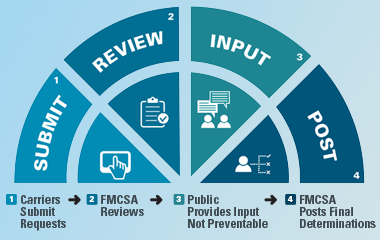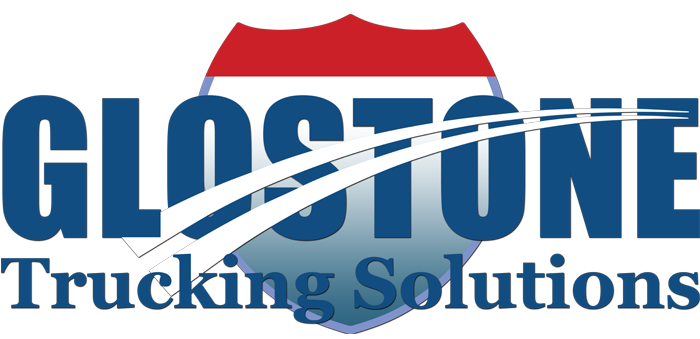
Carriers Disputing Crash Fault In CSA Scores Planned To Be Made Permanent
posted in Alerts by Brian Gray
Carriers Disputing Crash Fault In CSA Scores Planned To Be Made Permanent
Before, all crashes, regardless if it was preventable or not, was included in a carrier’s CSA scores and negatively affect their safety ratings. For example, fatal crashes listed on a carrier’s safety profile did not contain information on whether the carrier was at fault in the crash.
Under a two year pilot program, which is ending in July, the FMCSA is accepting Requests for Data Review (RDRs) in its DataQs system for certain crashes. So, if a crash is found to be not preventable, a carrier’s private Crash Indicator Behavioral Analysis Safety Improvement Category, or BASIC, score would be recalculated with the crash omitted.
Based on positive feedback from industry stakeholders, the FMCSA will propose to make this demonstration program permanent and to begin immediately after the pilot program ends.
Starting Oct. 1, carriers will be able to dispute 15 types of crashes, rather than the eight types allowed under today’s pilot program. The agency says it will make a determination within 24 months whether to continue accepting reviews for the additional seven types of crashes added to the list.
How do I dispute crashes?
The FMCSA lists all crashes on the public Safety Measurement System (SMS) website. However, after a motor carrier or driver submits compelling documentation during the DataQ process (police accident reports, insurance documents, videos, etc.), a crash with a final determination will appear with a note that FMCSA reviewed the crash and determined it was either “Preventable” or “Not Preventable.” In some cases, a third option of “Undecided” may be determined if there was inconclusive evidence provided.
When reviewing crashes, the agency used the preventability standard found in federal regulations that states: “If a driver, who exercises normal judgment and foresight could have foreseen the possibility of the accident that in fact occurred, and avoided it by taking steps within his or her control which would not have risked causing another kind of mishap, the accident was preventable.”
The agency says it believes it is important to display all crashes, regardless of the preventability determination, to provide “the most complete information regarding a motor carrier’s safety performance record.”
Starting Oct. 1, carriers will be able to dispute 15 types of crashes, rather than the eight types allowed under today’s pilot program. The agency says it will make a determination within 24 months whether to continue accepting reviews for the additional seven types of crashes added to the list.
The current crash dispute system will remain operational until Sept. 30 for crashes that occur through July 31. Crashes occurring after then will need to be uploaded in the new system starting around Oct. 1.
The FMCSA will accept the following crash types for review:
- When a truck was struck by a driver under the influence or a related offense
- When a truck was struck by a motorist driving in the wrong direction
- When a truck was hit in the rear
- When a truck was hit while legally stopped or parked
- When a pedestrian or car drives in front of a truck in an attempt to commit suicide by truck
- When a truck sustains disabling damage after hitting an animal in the road
- When a crash is caused by an infrastructure failure or falling trees, rocks or other debris
- When a truck is hit by cargo or equipment from another vehicle
In addition to those crashes, FMCSA will in October begin accepting review requests on the crashes listed below: - When a truck is hit by a vehicle that did not stop or slow in traffic.
- When a truck is hit by a vehicle that failed to stop at a red light, stop sign or yield sign.
- When a truck is hit by a vehicle that was making a U-turn or illegal turn
- When a truck is hit by a vehicle driven by a driver who experienced a medical issue that caused the crash.
- When a truck is hit by a driver who admits to falling asleep or being distracted (by a phone, passengers, etc.)
- When a crash involves a driver under the influence.
- When a crash involves a driver operating in the wrong direction, even if the truck was hit by another vehicle other than the one driving in the wrong direction.
The DataQ System and Process
DataQ is the online system for drivers, motor carriers, Federal and State agencies, and others to file concerns about Federal and State data maintained in MCMIS and released to the public by Federal Motor Carrier Safety Administration. The FMCSA established the DataQ system in February 2004.
The DataQ system is used to fix incorrect or duplicated information in the Federal MCMIS database. This is the system that generates your safety measurement system scores for public viewing, as well as the database for a driver’s “Pre-Employment Screening Program” and a motor carriers audit results. DataQ is used primarily for three reasons:
- To request copies of roadside inspections that were not received by the motor carrier
- To request the removal or correction of violations incurred during roadside inspections
- To request the removal or correction of violations found during a federal safety audit or “compliance review”
Actively managing your safety measurement system (SMS) scores is crucial to the success of Motor Carriers. The “SMS” will only become more central to the FMCSA’s enforcement strategy as we move forward from 2017. Eventually, the SMS will determine your DOT safety rating based off of your SMS scores and inspection data so it is more important than ever to make sure the data in the system is accurate and appropriate for your company.
Take advantage of the DataQ system and make sure your records are fair and accurate!
Want Help With This Whole Process?
Glostone can do this for you so you can focus on what you do best. Contacts our expert staff today at 503-607-1088.






